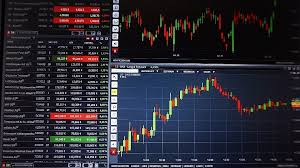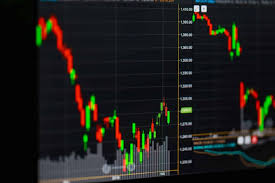
Understanding Forex Trading Brokers
When diving into the world of forex trading, choosing the right broker is paramount to your success. With a plethora of options available, it can be overwhelming for both beginner and experienced traders. This article aims to provide a comprehensive guide to forex trading brokers, outlining their key features, functions, and how to choose the best one for your trading needs. To start off, take a look at forex trading brokers Global Trading Brokers for insights on a variety of service providers.
What is a Forex Broker?
A forex broker is a firm that provides traders with access to a trading platform for buying and selling foreign currencies. Brokers act as intermediaries between the market and the trader, enabling the execution of trades. They make a profit through spreads (the difference between the buying and selling price) or commissions on each trade executed.
Types of Forex Brokers
Forex brokers can be categorized into several types based on their execution methods and how they handle client orders. The primary types include:
- Market Makers: These brokers create a market for traders by providing a fixed spread. They often take the opposite side of client trades, meaning they can profit when traders incur losses.
- Direct Market Access (DMA) Brokers: DMA brokers allow traders to interact directly with the interbank forex market. This means they can view real-time quotes and trade without the intervention of the broker.
- ECN Brokers: ECN (Electronic Communication Network) brokers provide direct access to the interbank market. They usually offer lower spreads but charge a commission per trade.
- STP Brokers: STP (Straight Through Processing) brokers route client orders directly to the liquidity providers. Like ECN brokers, STP brokers offer lower spreads but may also charge commissions depending on the trading volume.
Key Features to Look for in a Forex Broker

Selecting a forex broker requires careful consideration of several crucial factors. Here are some features you should prioritize:
- Regulation: Always ensure that the broker is regulated by a reputable authority, such as the FCA (UK), ASIC (Australia), or CySEC (Cyprus). Regulation ensures proper oversight of the broker's operations, providing safety for your funds.
- Trading Platforms: Most brokers offer either their proprietary platform or popular platforms like MetaTrader 4 (MT4) or MetaTrader 5 (MT5). Ensure the platform you choose is user-friendly and equipped with the necessary tools for analysis.
- Spreads and Commissions: Compare the costs associated with trading, including spreads and commissions. Low spreads can significantly impact your profitability, especially for high-frequency traders.
- Leverage: Different brokers provide varying levels of leverage. While higher leverage can increase potential returns, it also amplifies potential risks. Choose the leverage that aligns with your risk tolerance.
- Customer Service: Reliable customer support is essential. Ensure that the broker offers prompt, efficient, and accessible customer service to assist you with any issues that may arise.
How to Choose the Right Forex Broker
With a myriad of options available, how do you choose the right forex broker? Here’s a step-by-step approach:
- Research: Begin by researching different brokers and gathering information on their reputation, user reviews, and regulatory compliance.
- Compare Features: Establish a comparison of potential brokers based on the key features outlined above.
- Open a Demo Account: Before committing real money, open a demo account with the brokers you are considering. This allows you to test their platforms and services without financial risk.
- Read the Fine Print: Ensure you understand all terms, including withdrawal policies, withdrawal limits, fees, and any other pertinent rules.
- Start Small: Once you’ve found a broker that suits your needs, begin trading with a small amount. As you gain more confidence and experience, you can increase your trading capital.
The Importance of CFDs in Forex Trading
Many forex brokers also allow trading in Contracts for Difference (CFDs). CFDs are financial derivatives that enable traders to speculate on price movements without owning the underlying assets. They can be advantageous for the following reasons:
- CFDs enable traders to leverage their positions, potentially increasing profits but also risks.
- Traders can profit from both rising and falling markets; you can go long or short based on your market analysis.
- They often allow for a broader range of instruments, including commodities, indices, and cryptocurrencies alongside forex pairs.
Conclusion
In conclusion, selecting the right forex trading broker is a critical step in your trading journey. By understanding the different types of brokers, their key features, and how to evaluate them, you can make an informed choice that aligns with your trading goals. Remember that trading involves risks, and it’s crucial to trade responsibly. Always conduct thorough research and practice risk management strategies to safeguard your investments. Happy trading!

